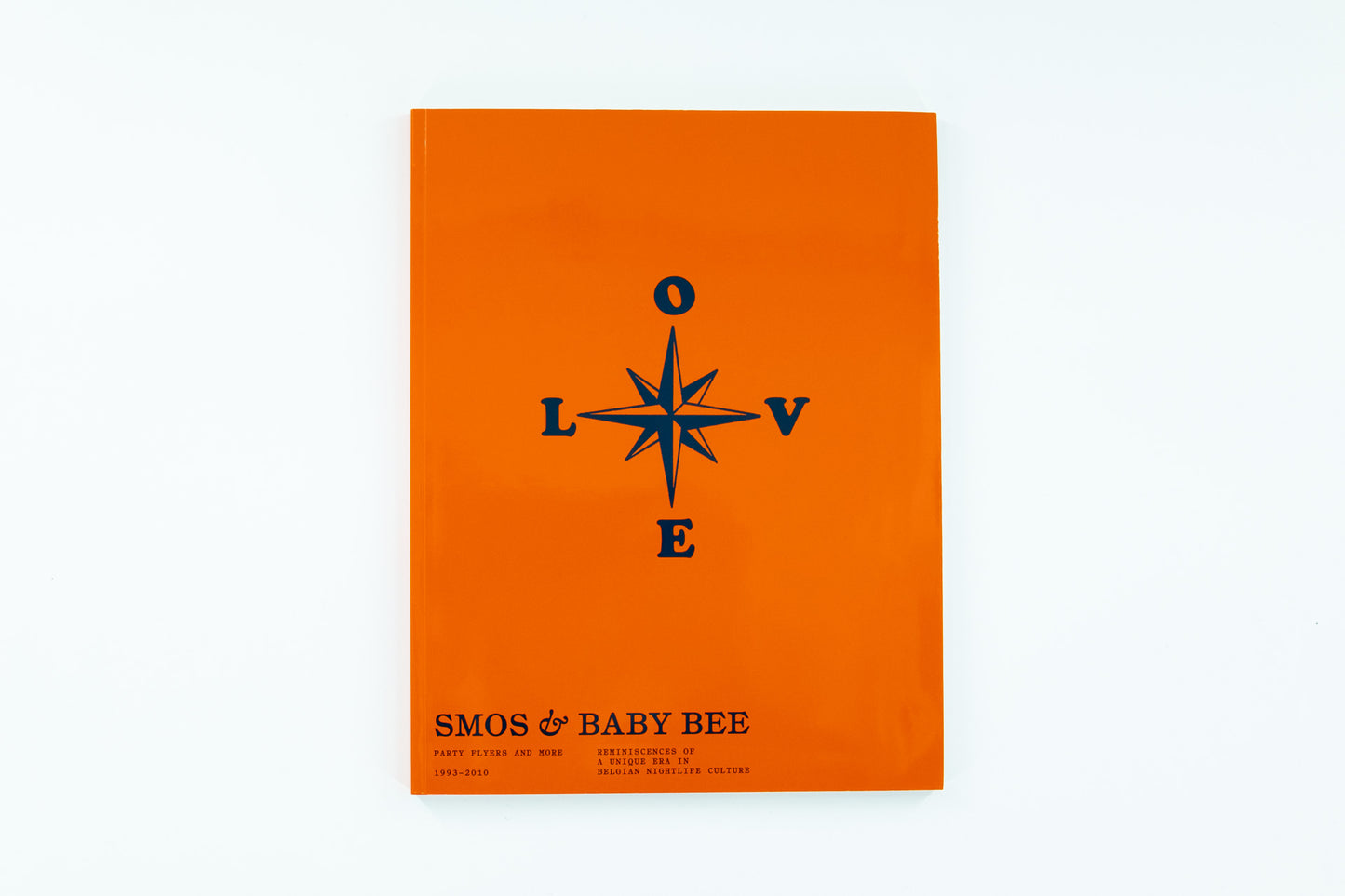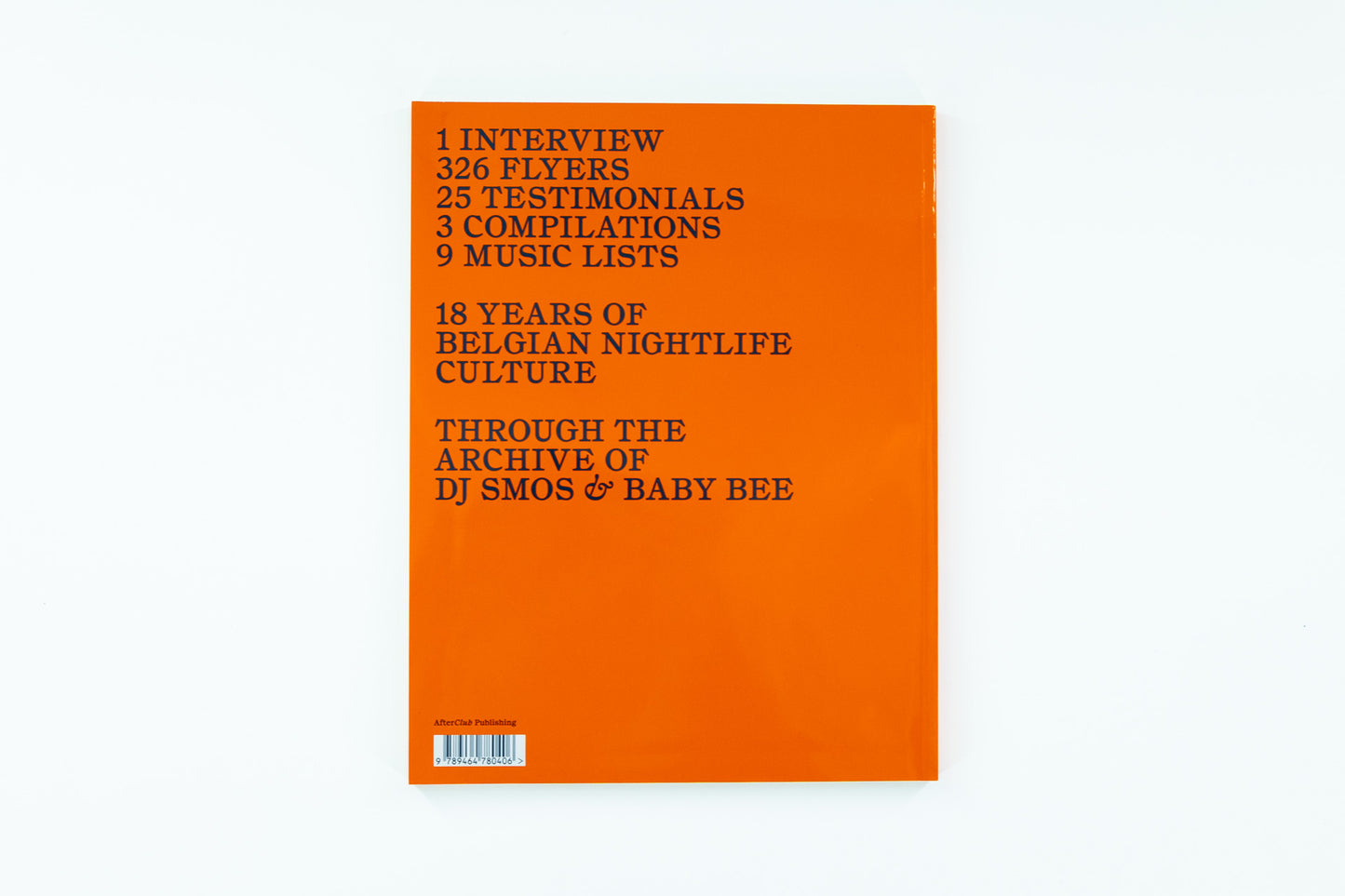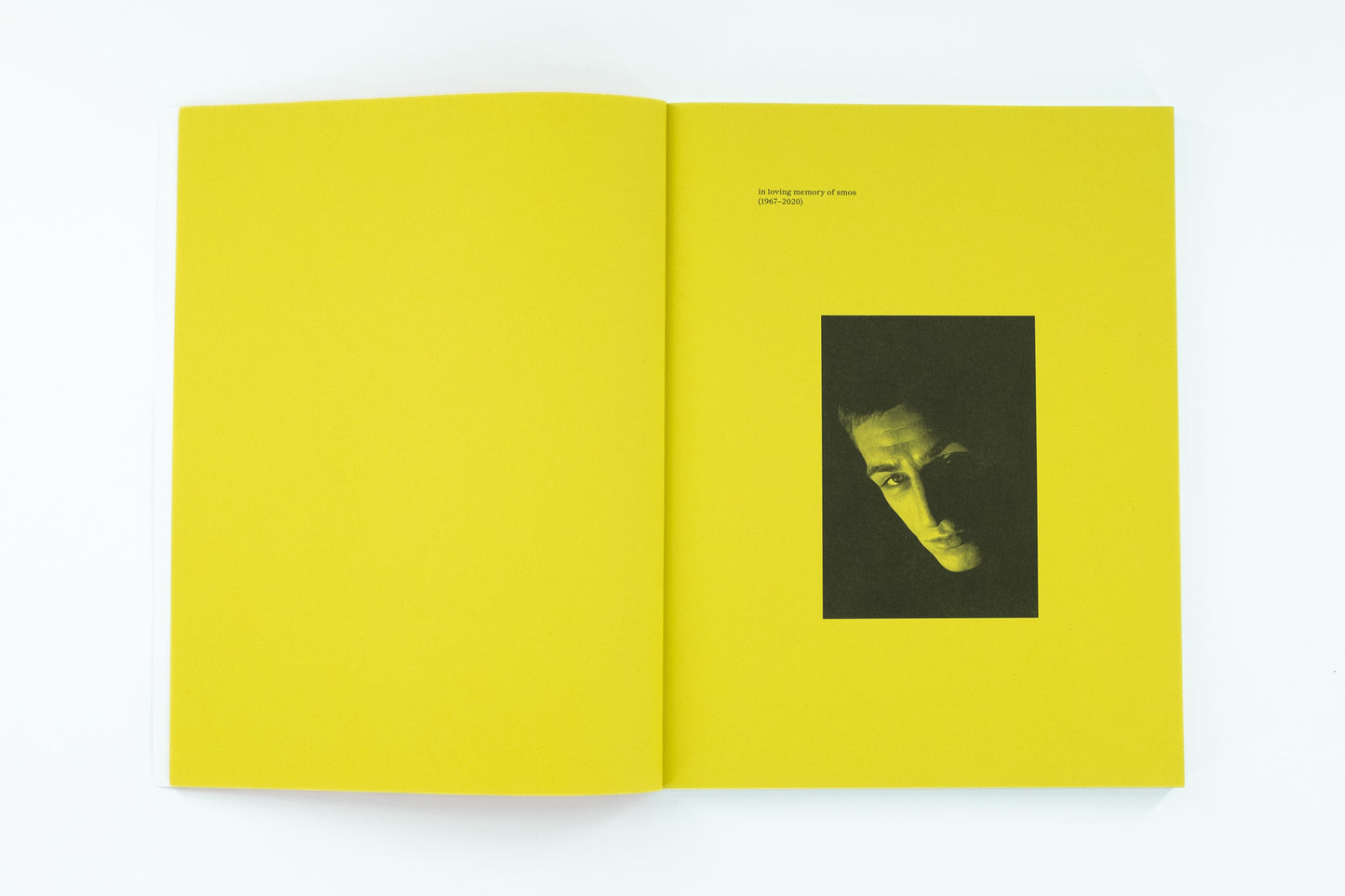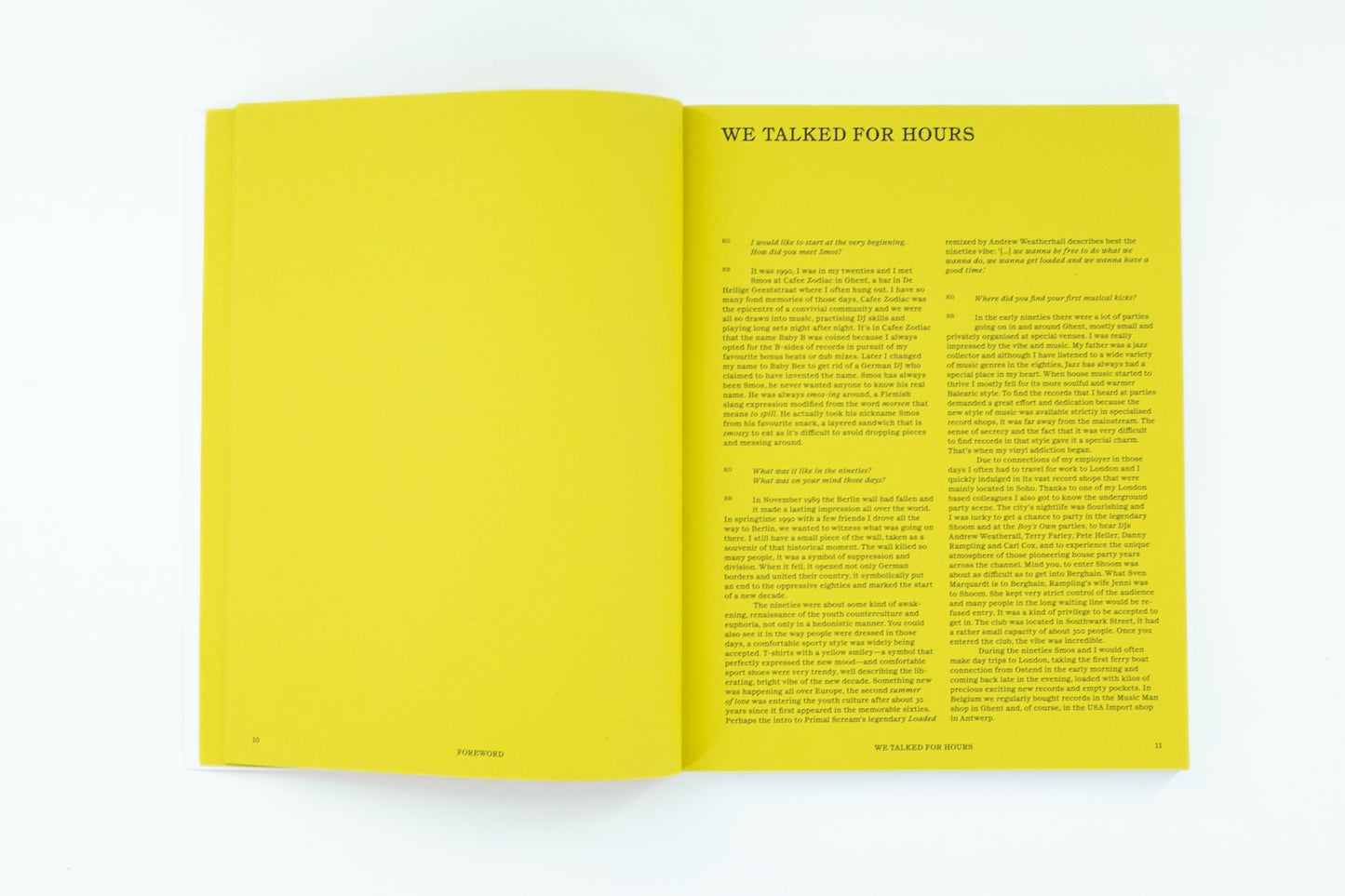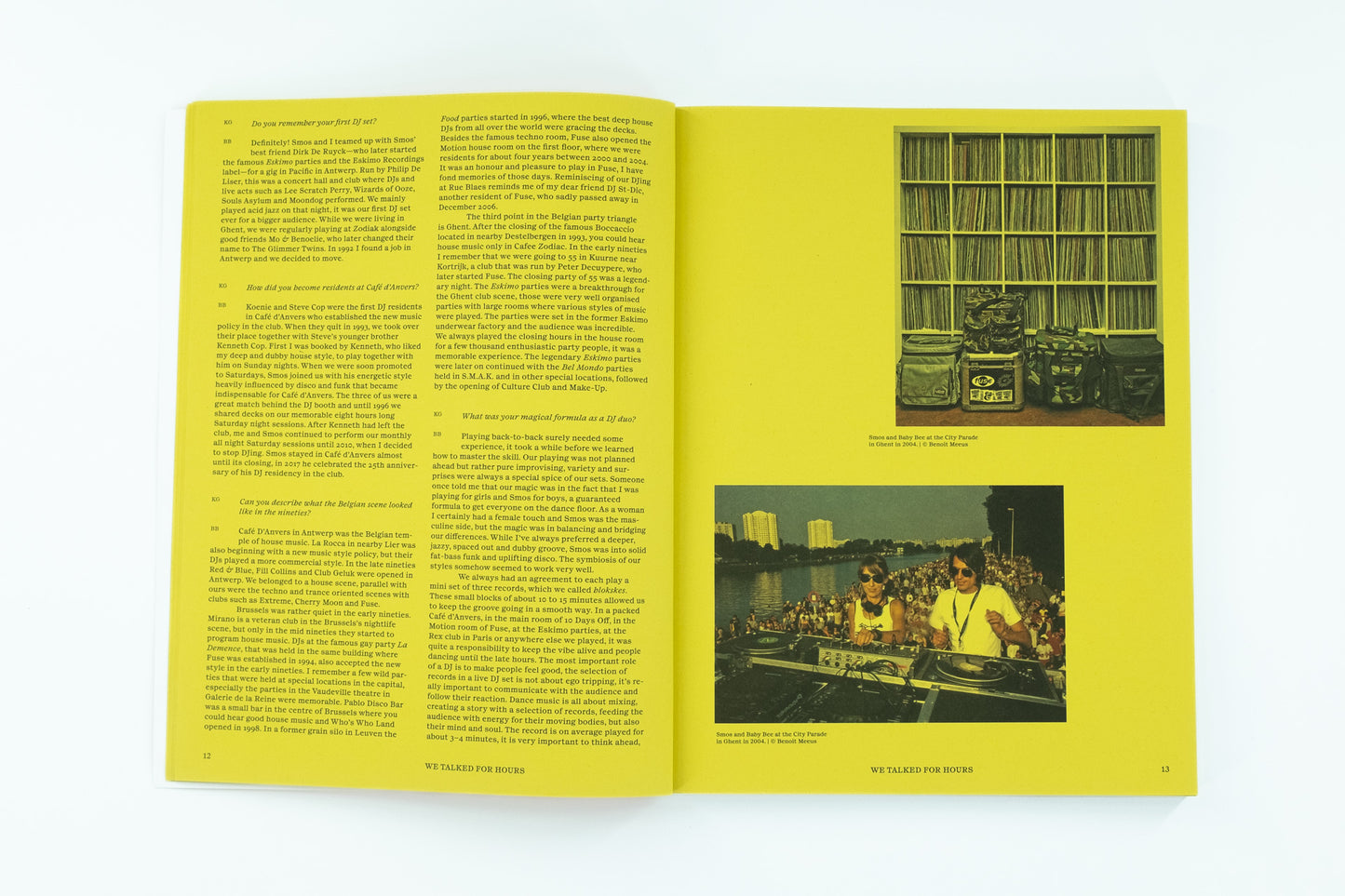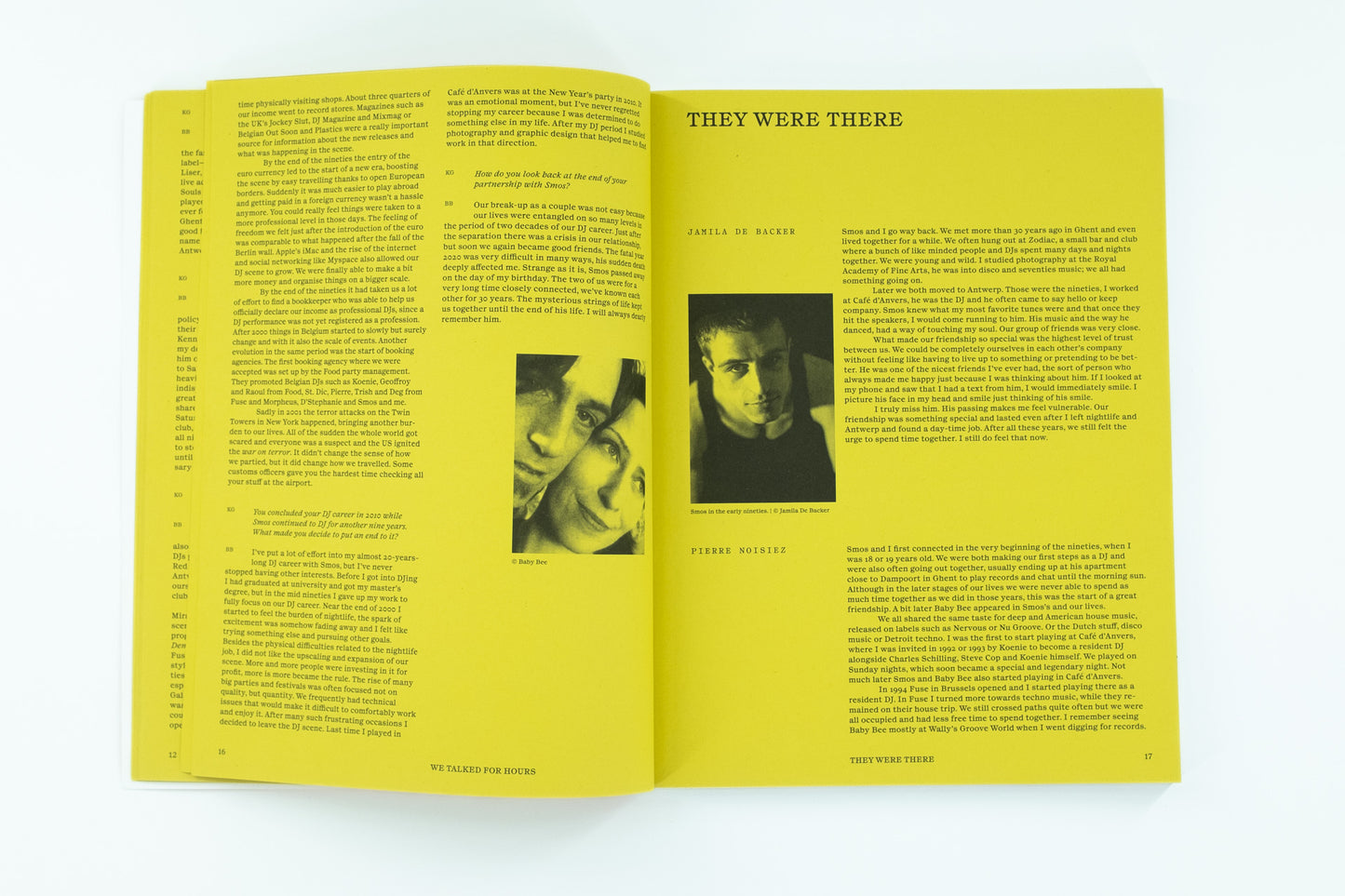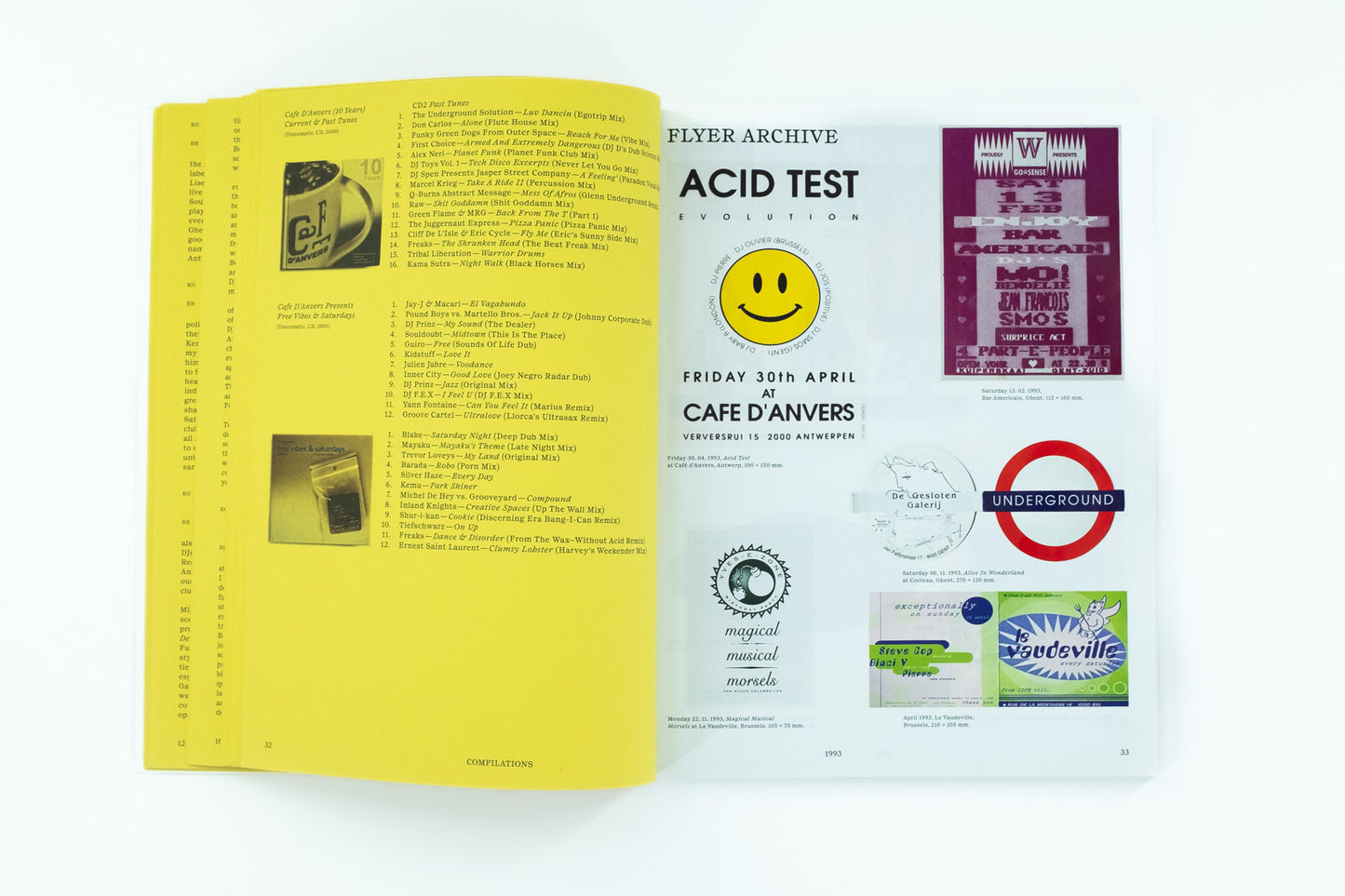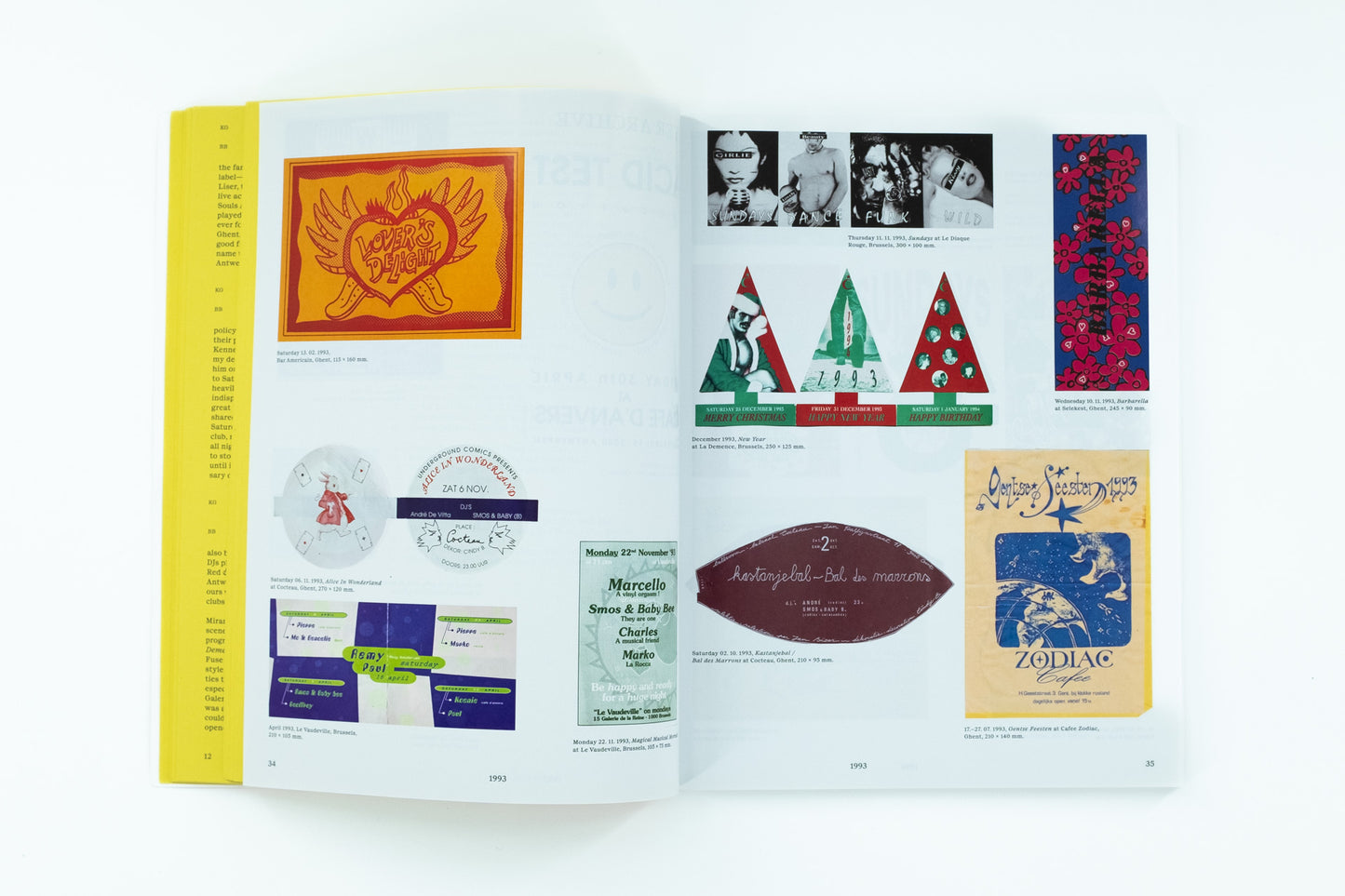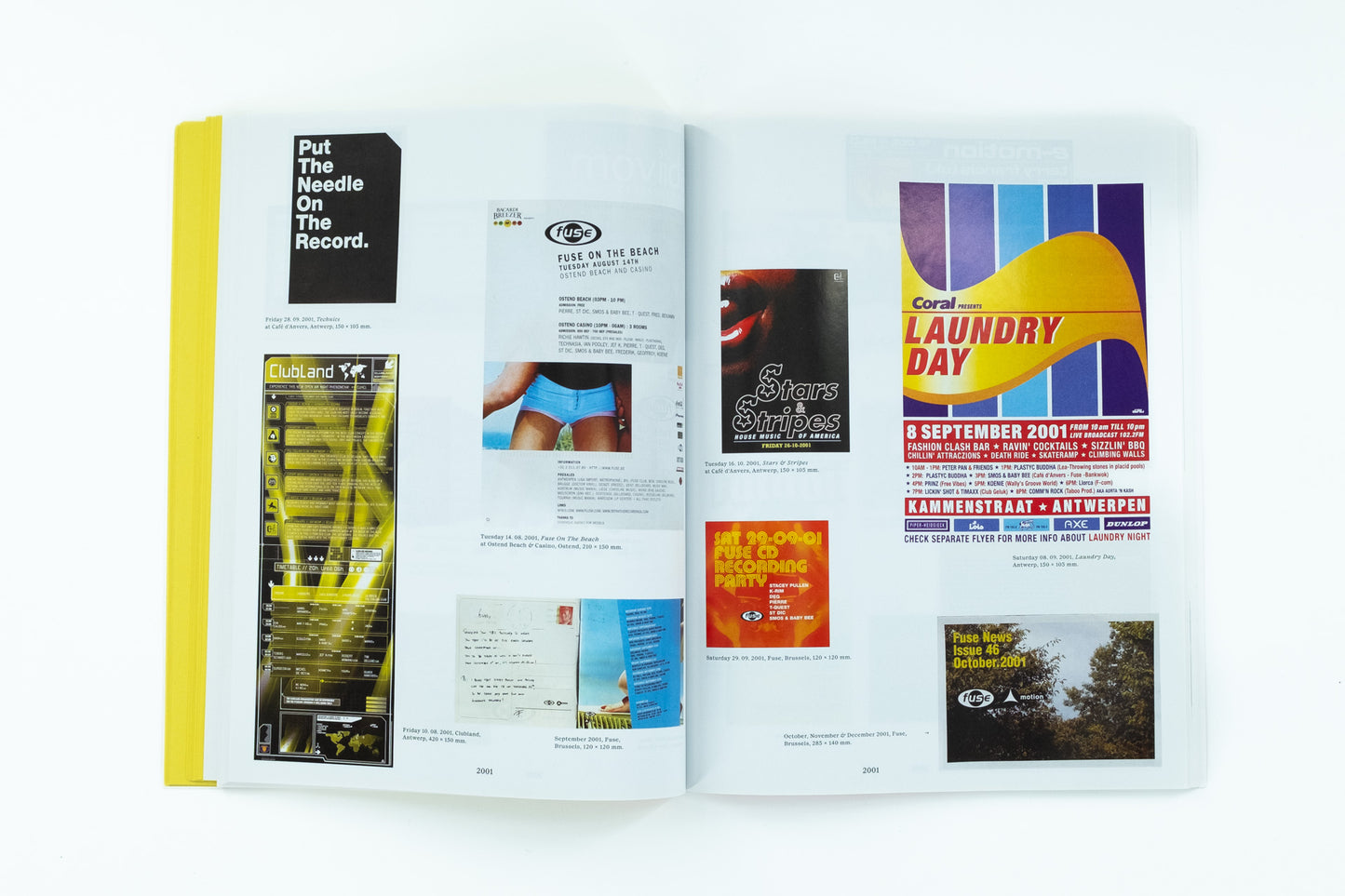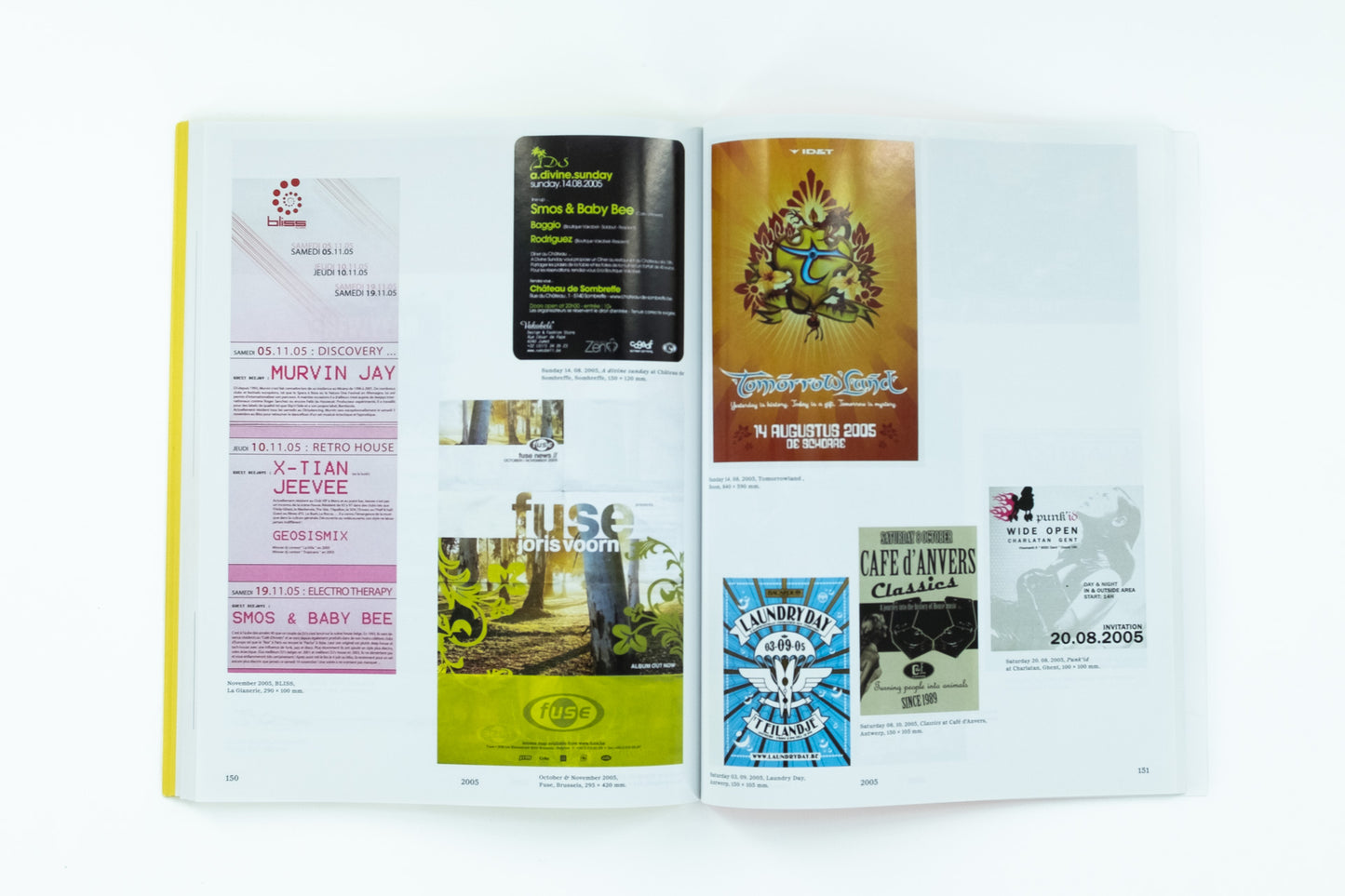Words for Mixmag, by Koen Galle
Can you tell me about how Smos and Baby Bee created such an impact in Belgium?
A few reasons were pivotal for the impact Smos & Baby Bee had on the scene in Belgium. They were among the first generation of DJs who incorporated the new style of music flooding nightlife, at a time when electronic music was really making its hits and hype in the clubs and record shops. They were simply really good DJs, flawlessly understanding the dynamics of a dance floor and known for their long nights of record playing - up to eight hours at their residency nights in the infamous Café d'Anvers. They were good-hearted and positive minded, playing in all major cities of Belgium (Brussels, Ghent, Antwerp, Leuven, Tournai, ...) and connecting different parts of the house scene while easily surpassing the language barrier between Flanders and Wallonia. And they were obsessed by the music, both working at record shops and organizing their life around the black gold.
What made this duo so unique in the electronic music scene?
I guess at the time a DJ duo wasn't so obvious as it is today. On top of that, they were lovers, perfecting each other as yin to yang. He was the free spirit, always in search of the groove, a jolly joker as she called him in the interview that can be found in the book. She was the organized, more serious type. Together they formed something special, which has been confirmed through oral history by everyone who I interviewed about them. 25 testimonials by befriended DJs, colleagues and promoters such as Mr. G, D'Julz, long-time Fuse resident DJ Pierre, national radio host Jan Van Biesen, ... can be found in the book as well.
Can you tell me what it was like to interview Baby Bee? It would be great to hear more about what she is like.
The whole process of publishing a book about their career has been quite intense for Baby Bee. Being confronted with all these memories was an emotional trip, especially since Smos has sadly passed away three years ago and due to the Covid pandemic a public memorial service has never been held. Parallel to our work on this book, she was also forced to move house, which meant having to leave the place where she had lived with Smos for so many years and thus having to let go of so many memories and artefacts from that period. But the way I see it now that we have launched the book, is that the book might also help to enable some closure for her and engage her into breathing new life in old relationships. She has told me everything about their life and career during our long conversations, both the highs and the lows. She has shown me vulnerability and has opened her heart for me. For people of her age, whose life and creativity hasn't been so accurately recorded by the internet as it is for today's key players of the scene, rebuilding an identity in retrospect really is an emotional tour de force. I'm very grateful that she wanted to share this with me.
What do you hope readers take away from the book?
I hope readers will be inspired by their unique story that started in a pivotal time in electronic music history and lasted for almost two decades. The book doesn't only read as a history of a DJ couple, but also as the history of our Belgian club and electronic music scene. The line-ups and the graphic design of the hundred of party flyers that are displayed in the book do manifest the evolution of a scene from a small network into the huge ecosystem that it has become today.



